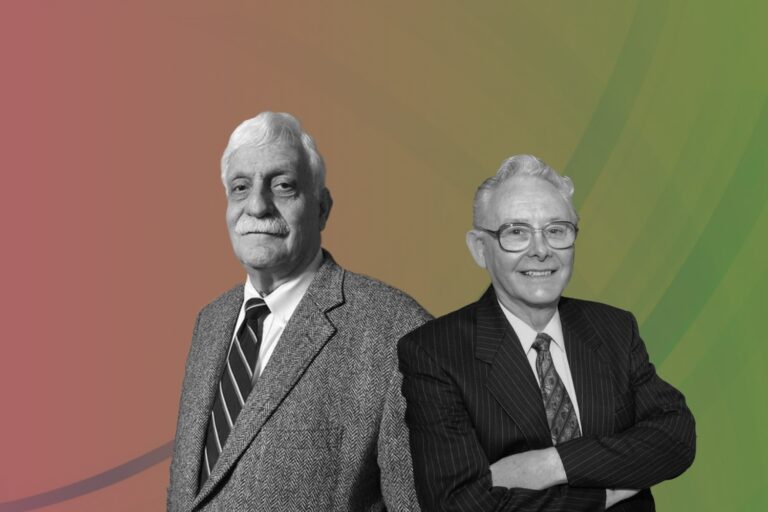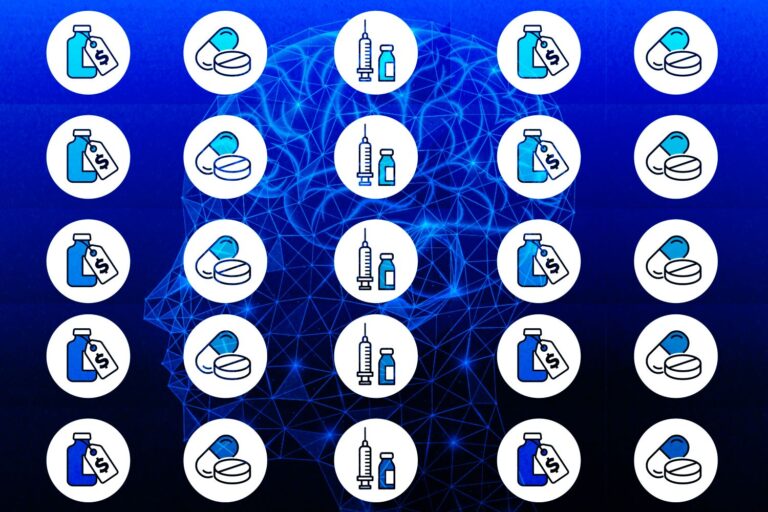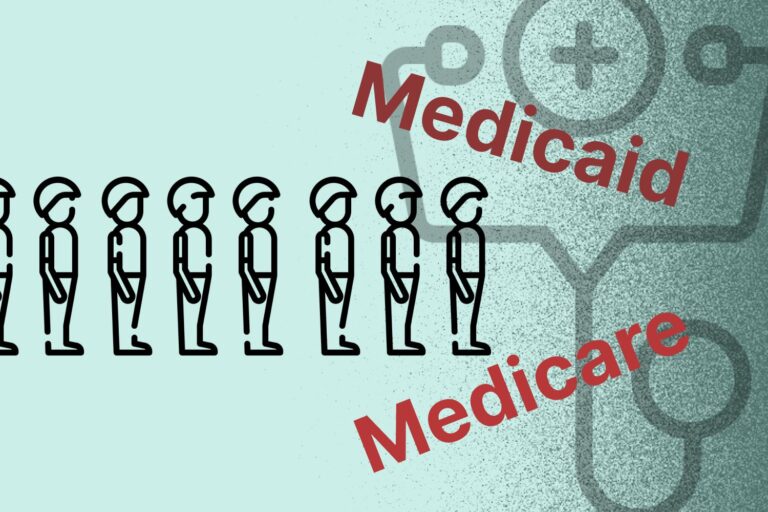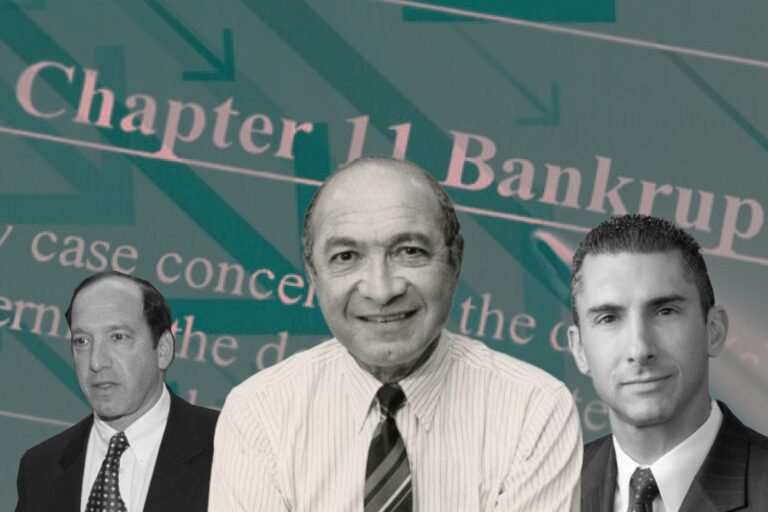This Behind-The-Scenes Player to Architect the Future Health-Tech Delivery’s Settings
COVID-19 fundamentally altered the retail industry. Retailers and manufacturers were compelled to radically rethink their business models and revenue sources as a result of closed locations, interrupted supply networks, idle inventory, and evolving health restrictions. As a result, it sped up the adoption of digital technology and changed consumer buying patterns in the blink of an eye.
Behind the scenes, that’s been really tough to do in health care services because of all the different interconnected dependencies, and all the difficulties of our healthcare system in America. Against all odds, there emerged a startup that dominated the press as its solution immediately solved the puzzle that was considered impossible by a different strategy with a largely business-to-business offering.
Launched in 2016 by Sid Viswanathan and Umar Afridi, San Mateo, the California-based Truepill provides a B2B application program interface that enables pharmacy fulfillment and delivery, white label packaging and product design. The company expanded its offerings beyond pharmacy fulfillment and delivery to include telehealth and an at-home lab testing network.
The journey from the idea of simplifying the healthcare system to an established start-up realizing that and beyond wasn’t an easy one. But what seems like pie in the sky is the “chemical reaction” when trying to mix a software engineer with a pharmacist in a strange condition for a long, long time. But it has bloomed, beautifully, into the inception of Truepill. Let’s figure out this “chemical equation”!
The Unexpected Flourish of Two Bizarre Elements
Started with Umar Afridi, he was raised in Manchester, England—the hometown of his mother’s family—after being born in Salt Lake City. He studied pharmacy at the University of Manchester and started working as a relief pharmacist, filling in for those who went on vacation, in England.
After passing the tests to practice in the United States, he landed a job at Fred Meyer near Seattle. Unlike other conventional pharmacists, Afridi always had an entrepreneurial side business. He imported performance vehicles from Japan, including the Mazda RX-7 and the Mitsubishi Evo 5, and sold them while still in college.
While serving as a pharmacist, he taught himself computer programming and began playing around with the idea of an on-demand pharmacy. His objective was to lessen clients’ annoyance with having to wait in line to pick up their prescriptions and to reduce the amount of phone calls and faxes needed for pharmacists to do their duties.
“I’ve always had a passion for technology, and every time I see a problem, I think, ‘How can technology fix this?’” he says.
As for Sid Viswanathan, this Indian immigrant had worked at Johnson & Johnson, then cofounded CardMunch, a business-card scanning app. In 2011, LinkedIn decided to buy the startup for a reported $3 million.
After the deal, Viswanathan stayed at the large company, and when LinkedIn went public, the stock he owned made him a first-time millionaire. “It was fairly life-changing coming from no money to having some,” he recalls.
After nearly four years at LinkedIn, he was ready to leave and work on another startup. “My only criterion was what do I want to spend the next 10 years of my life on,” shared the Truepill co-founder.
While he was questioning what to do next, he accidentally came upon Afridi’s profile on LinkedIn—where Afridi had changed his top corner to “startup founder, pharmacist”—and messaged him cold to talk about healthcare. Eventually the two regularly met and came up with business venture ideas.
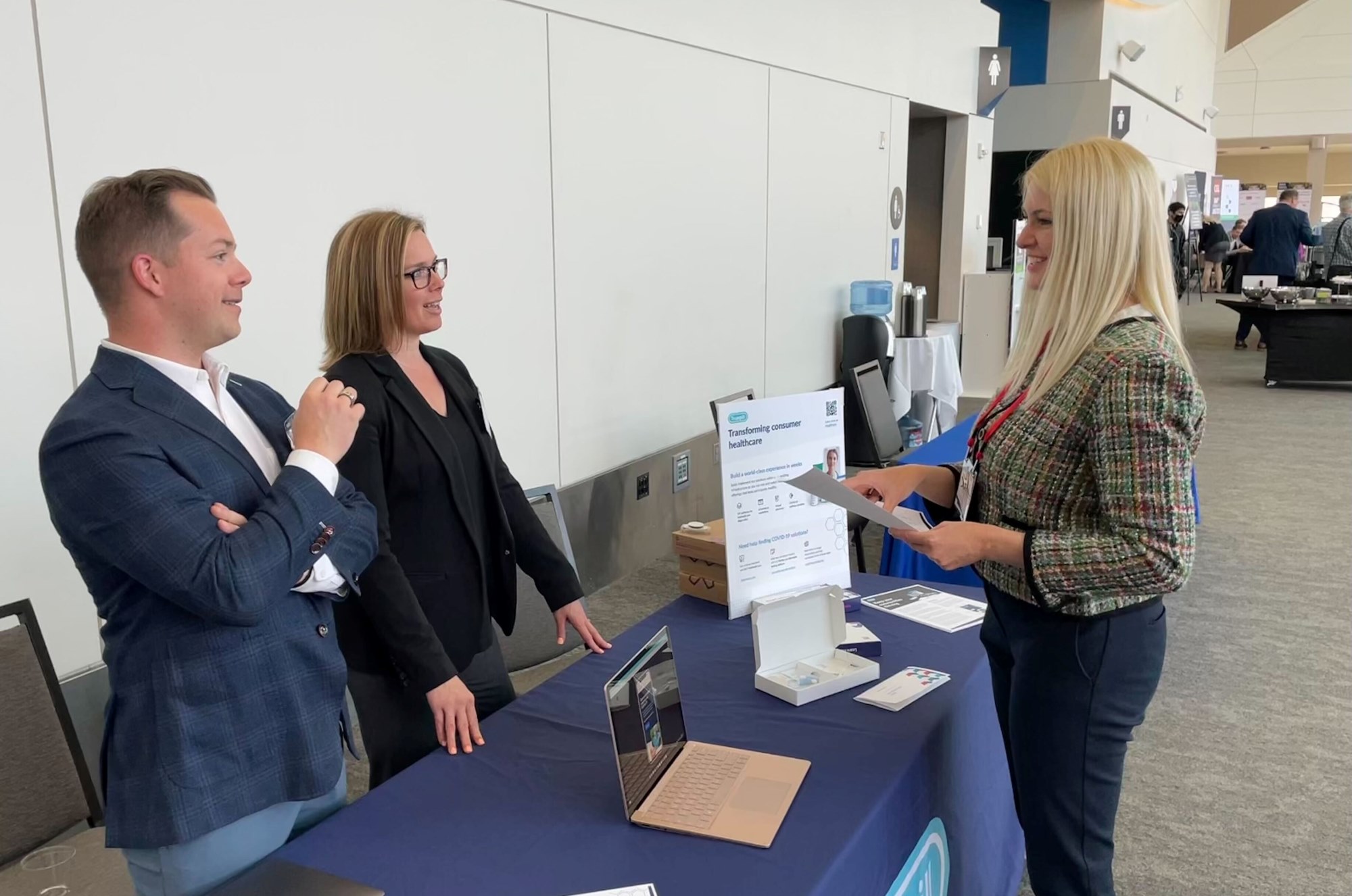
At that point, PillPack and other newly established pharmacies were gaining ground with retail clients. Rather than staying competitive in what had become a tight marketplace vying for retail customers, Afridi and Viswanathan reasoned they could function in the background, using technology to build an extremely effective pharmacy distribution center.
“Truepill is what you get when you put together a pharmacist and a software engineer,” Viswanathan says.
The company was in their market fit when their idea coincided with the increasing demand of new direct-to-consumer health companies that required a distributor that could follow all the pharmacy rules and regs.
To purchasers, these glamorous health products don’t look like drugs, and often their subscription boxes include a combination of both prescription and medicines sold directly to a consumer without a requirement for a prescription from a healthcare professional.
And if there’s even one vial of prescription pills going out in the mail, the startup trying to send it needs a pharmacy to fulfill the order. In a talking with Nurx, Viswanathan shared that, “we came to find out they were literally picking up the phone to mom-and-pop pharmacies in different states.” That’s where Truepill jumped in and gained consumers by presenting a better way.
Quietly constructed their foundation and some initial steps to give the insight, Truepill was there even before the chaos. When the clock said it’s their time, that’s when the healthcare industry was beginning a new stage of evolution – poised to impact how healthcare is supplied and consumed due to Covid 19. The startup finally sat at the table of potential enterprises and the press started to talk about them.
The amount of cash they receive tends to be old-fashioned to readers, now they prefer to dive into the behind the scenes to get the information of the startup’s core instruments. And at this point, Truepill’s cohesive approach is playing the main role in architecting its structure and transforming the healthcare industry setting.
Crafting the Story with Customer Centric Philosophy
Truepill delivered its very first prescription five years ago and has since enlarged its offerings for top companies and presenting convenient, accessible care to their consumers. Consistently putting the needs of the consumer first has been a significant motivator for the company to advance its technology.
Truepill has three pillars to its business: telehealth, diagnostics and pharmacy fulfillment. These core instruments power some 80% of healthcare experiences that can happen practically.
Customers have historically been forced to traverse disjointed, antiquated, and inefficient processes on their own because the American healthcare system has historically fallen behind other consumer-centric industries.
Although the need for innovation in the sector has been long overdue, COVID-19 functioned as the impetus for the widespread adoption of virtual healthcare as patients began to get more out of their care experiences in an unsettling time by avoiding doctor’s offices and physical pharmacies.
Truepill’s healthcare platform addresses these long-standing healthcare challenges, providing the building blocks their customers need to launch and scale world-class, consumer-first experiences.
One fascinating element in the startup’s operation is its business-to-business model makes it a behind-the-scenes player, unknown to retail customers, who will never have a reason to know its presence.
This disruptive method enables Truepill to enter into arrangements with pharmaceutical companies and pharmacy benefit managers—those industry middlemen who stand in the way of insurers and pharmaceutical companies—without engaging in direct competition with them. “We’re not a traditional mail-order pharmacy,” Afridi says. “We’re way more than that.”
The Harmony of Robotic Instrument and Inclusive Offers
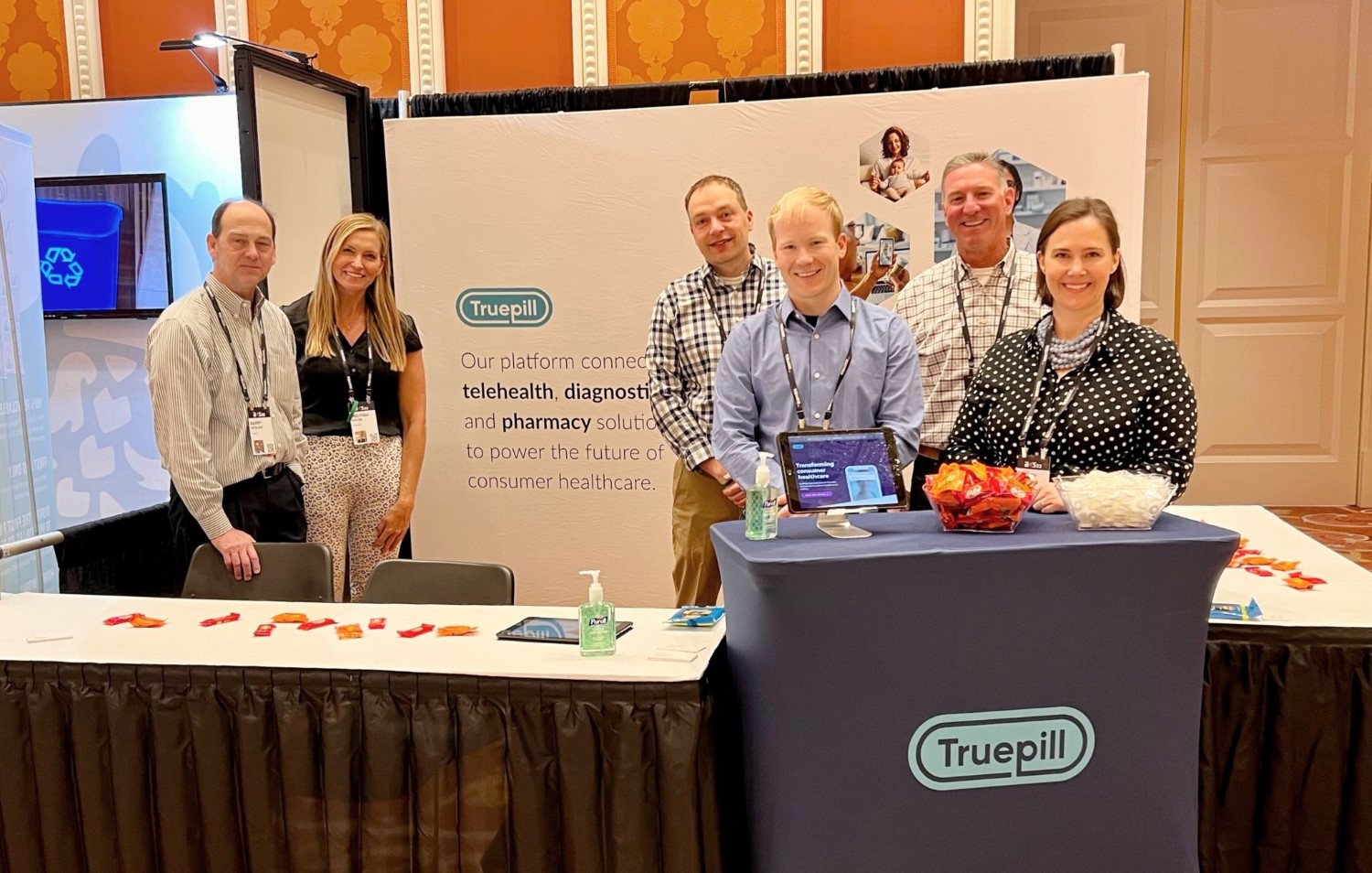
At Truepill’s Hayward distribution hub, all orders come in electronically. When Hims – Truepill’s partner sends a prescription for finasteride, the male hair-loss treatment, for instance, it travels through automated due diligence and then a robotic machine drags the 1-milligram tablets from custom-made 1,000-count bottles into a small pill jar that gets branded with Hims name.
That automated process allows Truepill to operate more effectively than a traditional retail pharmacy. It also achieves so by concentrating on a small number of drugs: Ten medications, including finasteride and the erectile-dysfunction drug sildenafil, represent 80% of its volume.
Due to its size in those markets, Truepill is able to rotate its inventory every few days and has the authority to bargain costs with pharmaceutical companies and pharmacy benefit managers for those goods.
Direct-to-consumer medicines are just the beginning for Afridi and Viswanathan. They are beginning to get into contracts with pharmaceutical companies and pharmacy benefit managers. For instance, the business recently partnered with the Mark Cuban-owned Cost Plus Drug Company to power their new online pharmacy, which offers millions of people access to affordable medication.
In addition, Truepill collaborated with one of the country’s biggest payers to develop a cutting-edge virtual pharmacy and care platform that allows more than 100 million Americans to order at-home diagnostic tests, medications, and wellness products, have their prescriptions delivered to their homes, and consult with doctors about their physical and mental health — all online.
Clients using Truepill’s Virtual Pharmacy platform can easily connect to the company’s other services, such as diagnostics, telehealth, and virtual primary care.
Truepill’s diagnostics platform offers a nationwide system of CLIA [Clinical Laboratory Improvement Amendments]-certified labs, devices and systems to over 3,000 at-home or in-person lab tests; the Virtual Primary Care offering involves a network of primary care physicians with coverage in all fifty states, and the company’s Telehealth platform facilitates up to 50,000 visits per week.
The same convenience and personalization that consumers seek in every aspect of their lives is now being demanded of healthcare. In that scene, Truepill empowers the industry to deliver modern, consumer-focused pharmacy. This offering is the key to a successful financial stage since it fills up the rising demand in the industry, looking at their record, we can see it all.
Big Deals Snapped for Its B2B Behind-The-Scenes Player
By the time Truepill got invited into the Y Combinator class of 2017, Viswanathan and Ufridi had been operating their startup by personal finances for a year and a half. The fact that the business was already making money, in Viswanathan’s opinion, improved its chances of entering the capital fund.
When the duo stepped past the gate of Y Combinator, Truepill raised $3.4 million in a Seed Round to pursue their mission. The healthcare platform raised $10 million for its series A in 2019 as its name gained notoriety in the venture industry.
Following its success, in 2020, the company announced that it closed a $25 million Series B funding round with investments from TI Platform Fund, Optum Ventures, Initialized Capital, Sound Ventures and others.
2020 appeared to be a prosperous year for the company as it got invested a ton of money to improve its product.
Truepill raised $13.4 million in the same year, and with another $25 million in the bank, the startup was well financed to expand into new areas — including telehealth. That’s the time when the company introduced Truepill Health, which will connect 9,000 U.S. physicians with patients through real-time video.
2 months after Series B, the startup came to a $75 million Series C funding round with investments from Oak HC/FT (lead), and additional participation from existing investors Optum Ventures, TI Platform Management, Sound Ventures and YCombinator.
After establishing an ecosystem of telehealth, diagnostics and pharmacies for consumers, digital health company Truepill decided to target healthcare incumbents like health payers, providers and employer groups.
The new focus was bolstered by the close of its $142 million Series D funding round in 2021, led by an undisclosed partner, with participation from existing investors Initialized Capital and TI Platform Management.

The latest funding roughly doubled the San Mateo-based company’s venture capital funding raised since its inception to $256 million and pushed Truepill into unicorn territory with a valuation of $1.6 billion in the year 2021.
The fundraising campaign coincided with Truepill’s plan to concentrate on its primary pharmacy operation. Via its market-leading APIs and digital pharmacy experiences, the business has, to date, experienced double-digit growth, powering major health and wellness businesses.
Truepill recently revealed a seventh brick-and-mortar pharmacy location in Sharonville, Ohio, which will create 120+ jobs over the next three years, and they had plans to open five additional pharmacy and OTC facilities.
Looking at their performance over the years, we can see how amazing their journey is. However, the road to success isn’t just sweets and candies, especially in the year 2022 with the economic dramatic change that leads to many changes in the industry. Standing in front of the storm, Truepill isn’t fluctuating but is executing plans to keep up with the ongoing setting.
Truepill and Its Next Chapter in The Future of Healthcare
Truepill’s upcoming chapter will be the pharmacy operations portion of the business, a return to form after the company’s frantic COVID-19 product sprint.
In its initial marketing materials, Truepill positioned itself as the Amazon Web Services (AWS) for pharmacies, powering brands like Hims, Nurx, LemonAID, and other direct-to-consumer healthcare businesses.
Over time — and various financing rounds, the startup saw opportunity in selling diagnostics and telehealth services. Ultimately, it shifted its focus from companies that cater to consumers directly to organizations including healthcare plans, life science firms, and providers.
The most recent action was a sharp contrast to how Truepill had described its business just a few months earlier; at that time, the company appeared to be on the offensive and estimated $300 million in revenue for 2021.
In 2022, Truepill suffered a variety of difficulties, including four rounds of layoffs and attention from the Drug Enforcement Administration. Two former employees told Insider that the startup’s costs were too exorbitant to maintain.
In April 2022, Truepill stalled prescriptions to ADHD medications because of growing concerns about digital health.
In June 2022, Viswanathan validated that he laid off an additional 15% of staff, impacting 150 people. Viswanathan said in a letter that the business was “focused on defining a new category in healthcare and growing top-line revenue,” but what was crucial is the business runs “with a new level of financial discipline and prioritization, ensuring the longevity of Truepill for both our clients and our teams.”
With the unforeseen layoffs, the company focused on enhancing the morale of the remaining employees. According to sources, the startup would examine each employee’s merit to ensure that they were paid fairly. The remaining workers would also receive two days for mental wellness. Executives would be sent to meet with staff members in person in small groups, Viswanathan informed the workers.
Despite some gloomy points during the course of 2022, the startup was still named as one of the most prominent startups in healthcare sector, the Business Insider’s list of the 21 most promising healthtech startups of 2022 was an instance.
Besides, the platform still stayed as an appealing solution in the eyes of investors. Billionaire Mark Cuban invested in the online pharmacy Truepill in November 2022 because he shared the startup’s desire to improve US healthcare, which has higher prices, but subpar results compared to other wealthy nations.


